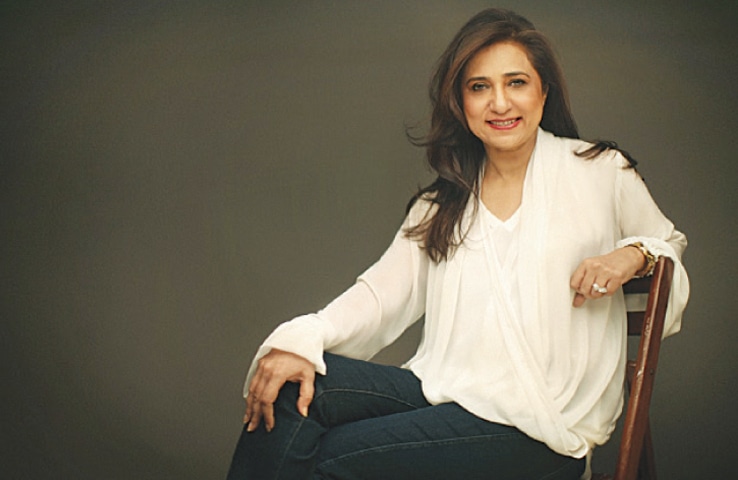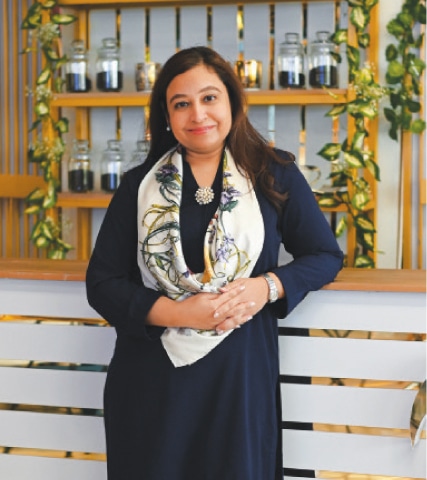The world has changed. It has been about 77 years since the last world war and over a century since the Spanish flu pandemic killed 50 million people. Women have come a very long way since then — occupying some of the highest seats and being represented at every forum.
But has the world really changed? Does having more female leaders make for a better kinder world, or is it more of the same? We asked some of the top corporate leaders in Pakistan while requesting them to narrate their greatest challenge.
Miles to go before we sleep

Founder & MD, Kashf Foundation
Yes, women are more included as leaders but even then only 10 per cent of the International Monetary Fund’s board comprises women. We have had Angela Merkel in Germany who among other things stood up to her party members when it came to accepting Syrian refugees, which didn’t win her votes. She as a leader demonstrated that doing the right thing requires courage and tenacity, which many male world leaders perhaps lack today.
However, I think in terms of influencing broader policies women still need to “lean in” much more, and have their voices heard. Social media and the internet represents a huge possibility to change global policies and we will definitely see more women in this space. One doesn’t have to be an elected leader of a country to carry weight.
For example, Selena Gomez has 272m followers — that’s where the power of change lies, along with the fact that women’s control over investable wealth is also on the increase, which implies women cannot be ignored and the issues women care about will come to the forefront.
However, it will take us 200 years to close the economic gender gap according to the World Economic Forum — we do have miles to go before we sleep.
Being a pioneer in the social enterprise space in Pakistan is not easy for either gender. In our context anyone working for a social cause is immediately seen as a charity, the assumption being that poor people require handouts and don’t know what is good for them.
I have had to really work on changing this paternalistic mindset especially when you apply it to women from low-income families. It always amazes me that people assume not-for-profits cannot have a strong social business approach. As Dr Yunus of the Grameen bank says, if we treat poor people like bonsai trees, they will never realise their potential.
Great expectations

Company Secretary & General Counsel, HBL Microfinance Bank
As per mid-2021 statistics, there are 49.58pc women in the world. Therefore, for me, greater inclusivity of women implies that more people are participating in the decision-making process — making it more democratic in the true sense of the word.
Research shows that women in positions of public decision-making are more mindful of the impact of decisions and policies on women, children, families and communities. With the involvement of more women in positions of influence, the response to the pandemic and conflicts would be more nuanced and inclusive.
My greatest challenge has been societal perception. There is a certain lens through which women are seen, and certain roles and responsibilities that societal bias places on them.
From being assumed to be the primary caregiver in the house, to being anticipated as always available by schools and teachers, to being the perfect hostess, are all expectations I have found being associated with females. There is an assumption that they can do all and be all.
I find that to be the greatest challenge because these societal biases make us hold ourselves to sometimes unreasonable expectations from ourselves.
Double the work

CEO & Co-founder, Sehat Kahani
Women are more included but many are still marginalised in terms of freedom of choice, freedom of making their own financial decisions, freedom of speech, freedom of socially behaving the way they want.
As women are more included, their responsibilities increase as they work double shifts at their jobs and homes. A lot of women don’t have access to smartphones and mobiles to get connected to the world. As things get better, their connectivity has to increase.
Women need to be supported emotionally, mentally, physically and be given the flexibility to work comfortably. It is very important to allow them to talk about their mental health and wellbeing without the pressure of being judged. Society seems to think that female entrepreneur are not able to scale up or create big businesses. People still question our progress with scepticism assuming it is based on luck. They forget that being a female entrepreneur, the work is double from than that of male counterparts.
Proving my mettle

COO, Gul Ahmed Textiles
Empowered women in income-generating activities not only survive, prosper and provide financial support for their families, they also support women-to-women business potential in the form of training in strategic business development and assistance with marketing skills.
I was also expected to juggle familial and professional responsibilities which was a challenge in itself, and even more so when you set out to build a brand. Textiles, in the past, was mostly family-owned businesses. My greatest challenge was breaking into such a male-centric industry, however, I was given full support and opportunity and with perseverance, I was able to prove my mettle and become what I am today.
The simple things

President BSPAN & GM Pakistan, Ekaterra (a division of Unilever)
Female CEOs make up 6.4pc of the Fortune 500 list. However, greater gender diversity in a senior executive team corresponds to the highest performance uplift. For every 10pc increase in gender diversity, earnings before interest and taxes rose by an astounding 3.5pc.
When women are represented in the high rungs at the government, the result is also commendable. We already know that the countries with the best initial response to the Covid 19 pandemic (with the lowest death rates) were Germany, New Zealand, Denmark, Taiwan and Finland and all were led by women.
The biggest risk that I took for my career and family was when I was offered a role in Turkey within Unilever. As my husband did not want to leave Pakistan, I had the choice of either letting go of the once in a lifetime opportunity or putting my family life at risk.
But with my husband’s encouragement, I ventured into this new role with no regrets. We installed CCTV cameras across my house in Pakistan and had virtual dinners with my husband. These simple things really helped me stay in touch with my children and maintain my bond with my husband.
Published in Dawn, The Business and Finance Weekly, March 7th, 2022












































Dear visitor, the comments section is undergoing an overhaul and will return soon.